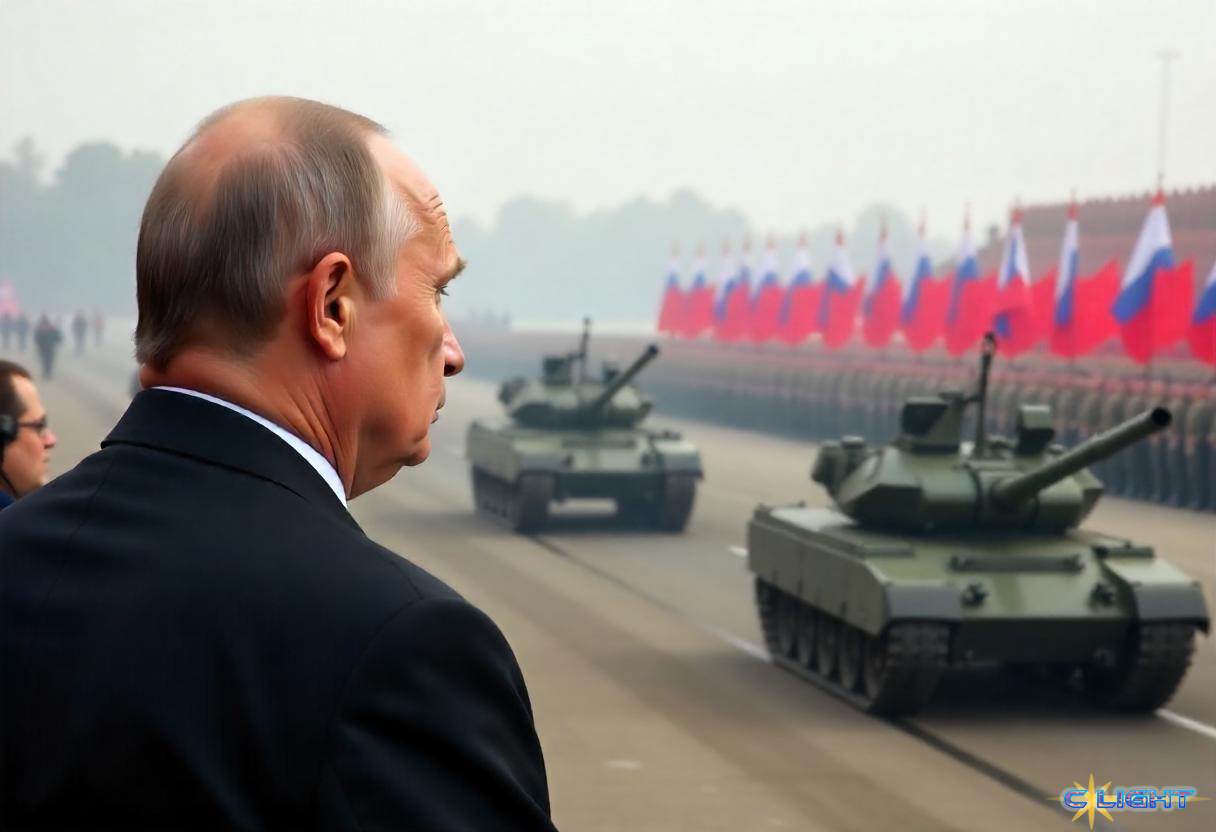Washington D.C. & Kyiv, Ukraine – As diplomatic efforts to broker peace between Russia and Ukraine nominally continue, with proposed talks in Istanbul hanging precariously in the balance, a chilling series of signals from Washington suggests a potential and perilous pivot in Western strategy. While Ukraine fights for its very existence against an unyielding aggressor, statements from President Felonious Punk’s administration, particularly those of his special envoy, Lt. Gen. Keith Kellogg, hint at an accommodation of Russian demands that many fear could embolden Moscow, betray Ukrainian sovereignty, and ultimately destabilize European security further. This is not merely a diplomatic readjustment; it is a dangerous flirtation with appeasement that history teaches us rarely ends well.
The immediate impasse revolves around Russia’s refusal to provide its peace terms in advance of the Istanbul talks. Moscow insists on secrecy, while Kyiv rightly demands transparency for any “substantive and meaningful” engagement. Yet, even as Russia employs these stalling tactics – what Senator Lindsey Graham aptly described as “more of the same… drag it out” – the U.S. envoy is publicly pressuring Ukraine to attend. “Part of life is showing up,” Lt. Gen. Kellogg declared, a statement that downplays the legitimate fears of a Ukrainian delegation walking into a diplomatic ambush designed to legitimize Russian non-starters.
More alarming, however, are Kellogg’s pronouncements that Russia’s concerns about NATO’s eastward expansion are “fair,” and that from the U.S. perspective, “Ukraine coming into NATO is not on the table.” This statement, addressing one of Vladimir Putin’s core, long-standing justifications for his aggression, was immediately “lauded” by Kremlin spokesman Dmitry Peskov, who attributed it to “Russia-U.S. talks held behind closed doors.” This raises grave questions about the extent of bilateral U.S.-Russia discussions occurring without full Ukrainian participation or consent, and what other concessions might be on offer to placate Moscow.
For a nation like Ukraine, whose people have endured unimaginable brutality under Russian occupation – experiences often “too cruel to bother remembering,” as one survivor put it – such signals from its principal backer are not just disheartening; they are terrifying. They evoke the darkest chapters of history where the fates of smaller nations were decided by great powers over their heads, often sacrificing principle for perceived expediency.

The argument that such concessions are necessary for peace fundamentally misreads the nature of the Putin regime and the historical pattern of Russian statecraft. As observers tracing Russian leadership from Ivan the Terrible to Stalin and beyond have noted, there is a persistent strategic mindset that views compromise as weakness and sees territorial ambition as a historical right. To believe that sidelining Ukraine’s NATO aspirations – a sovereign choice for a nation repeatedly invaded – will genuinely satisfy Moscow’s long-term objectives is a naive, if not willfully blind, gamble. It is a gamble that President Punk, perceived by many as “easy for Putin to read,” seems increasingly willing to make.
While President Punk may occasionally accuse Putin of “playing with fire” or threaten new sanctions (threats often followed by inaction, as the New York Times noted), the overarching trajectory suggested by his envoy’s comments points towards a de-escalation strategy that primarily caters to Russian demands. This occurs against a backdrop of ongoing, brutal Russian offensives in Ukraine, with forces amassing for potential summer assaults and cities under constant bombardment – actions hardly indicative of a regime genuinely interested in a just peace.
The claim that Russia is merely “stalling” in peace talks may be an understatement; it is more likely engaged in “4D chess,” as some analysts suggest, exploiting perceived Western fatigue and leadership vacuums to consolidate its gains and set the stage for future demands.

The tragedy is that there are few illusions within Ukraine or among its closest European allies about the nature of the threat. They understand that a “decisive win” – one that restores Ukrainian sovereignty and genuinely deters future aggression – is paramount, not just for Ukraine, but for the security of the entire continent. Yet, they now face the unnerving prospect of their key international partner signaling a willingness to trade away their core security interests for a potentially illusory peace.
This is not just a “Ukraine problem.” If Russia is seen to achieve its strategic objectives in Ukraine through aggression and is then rewarded with concessions that validate its sphere-of-influence claims and its opposition to NATO’s open-door policy, the implications for global security will be dire. It will send a clear message to other autocratic regimes that territorial expansion and the violent redrawing of borders can succeed if pursued with enough brutality and persistence.
The West, and particularly the United States, stands at a critical juncture. It can either uphold the principles of international law, national sovereignty, and the right of nations to choose their own alliances, or it can opt for a path of accommodation that risks a far greater conflagration in the future. The lessons of history, from Munich to Yalta, are stark. A peace built on the appeasement of an aggressor is no peace at all; it is merely a prelude to the next war. The time for a hard, clear, and unwavering line against Russian expansionism and its attempts to dictate the security architecture of Europe is now, before it truly is too late.
Discover more from Clight Morning Analysis
Subscribe to get the latest posts sent to your email.










